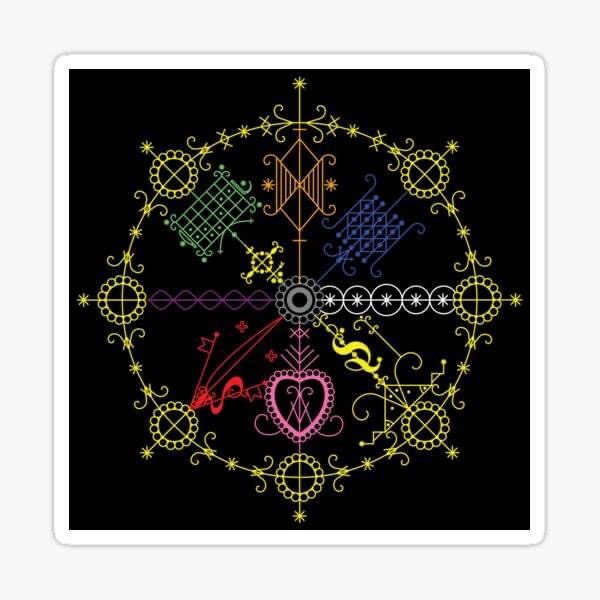
Bibliography
Summary
Vodou, also known as Vodun, is a complex religious system that is far from homogeneous in Haitian society. It encompasses various types of priests and practitioners who draw from different traditions and has different organizational structures. Here is an overview of the organization of Vodou:
- Vodou Makout/Makousi: One of the most common types of Vodou in Haiti is known as Vodou makout/makousi, referring to “strawbag Vodou.” In this tradition, the gangan or manbo priests provide treatments for the sick and hold religious services for families and communities. These rural gangan/oungan (male) and manbo (female) priests are usually called to their vocation through dreams and family traditions.
- Vodou Lakou: Vodou lakou refers to the Vodou yards or communal spaces where the religious practices take place. These are older Vodou communities that have been in existence for several generations. Each lakou may follow a specific Rite, which determines its spiritual practices and cultural traditions. For example, Lakou Nan Badjo in Gonaïves is over 200 years old. In Vodou lakou, the sèvitè or manbo (priestess) is in charge of conducting religious services, but they do not provide healing treatments.
- Sèvitè Priests: Sèvitè priests are commonly found in the Gonaïves region of Haiti where Vodou lakou communities adhere to a particular Rite. These priests, both male (oungan) and female (manbo), are responsible for leading religious services in their respective communities. Each lakou may maintain a specific Rite, such as Dahomen Rite, Kongo Rite, Nago Rite, or Banda Rite.
- Vodou Asogwe: Vodou Asogwe refers to a major type of Vodou that is distinguished by the initiation rites that promote candidates into the priesthood. The word “asogwe” is the name of this initiation ceremony, in which the candidate receives the ason (sacred rattle) and is conferred the title of oungan asogwe (male) or manbo asogwe (female). This type of Vodou has historical grounding as it was founded by earlier captive populations from the Bight of Benin, who brought their well-organized priesthood, culture, and initiatory system to Saint-Domingue (Haiti’s colonial name) and exerted significant influence there.
- Founder Principle: The Vodou religion in Haiti exhibits a phenomenon called “spirit migration,” which sheds light on the Founder Principle. Important spirits that originated in the Bight of Benin region have migrated into the Rites of West Central Africa, likely influenced by a deeper African tradition of spirit migration between neighboring cultures. This migration process indicates the central influence of the religion’s founders from the Bight of Benin, even though Vodou incorporates pan-African religious inclusivity.
Overall, the organization of Vodou is diverse, with different types of priests, practitioners, and rituals. Each type and community may have specific traditions, spiritual practices, and cultural elements that contribute to the rich and varied tapestry of Haitian Vodou.
Languages
In the context of Haitian Vodou, the use of multiple languages is a fascinating aspect that reflects the diverse cultural and linguistic influences within the religion. The primary language used in Vodou Rites and sacred songs is Haitian Creole, but it incorporates numerous lexical items from various West African and West Central African languages. Let’s take a closer look at these languages mentioned:
- West African Languages:
- Fon: This language hails from the Fon people of Benin, and its lexical items have made their way into Haitian Vodou, contributing to the rich lexicon of the religion.
- Yoruba: Originating from the Yoruba people of Nigeria and Benin, Yoruba language elements can be found in the Haitian Vodou lexicon.
- Ewe: Associated with the Ewe people of Togo and Ghana, Ewe language has also influenced the vocabulary of Haitian Vodou.
- Igbo: The Igbo language, spoken by the Igbo people of Nigeria, is another West African language that has contributed to the linguistic tapestry of Haitian Vodou.
- West Central African Languages:
- Kikongo: Kikongo is a language spoken by the Kongo people of the Democratic Republic of Congo and Angola. It is one of the West Central African languages whose lexical items can be identified in the Haitian Vodou tradition.
- Kituba: Kituba, also known as Kikongo ya leta, is a creole language based on Kikongo that developed as a lingua franca in Central Africa. It has also influenced the language used in Haitian Vodou.
These various African languages’ contributions to the lexicon of Haitian Vodou play a significant role in the religion’s identity. They not only demonstrate the diverse African cultural and linguistic influences but also highlight the syncretism and fusion of various traditions that have shaped the Vodou practices we see today.
It is worth noting that while the source mentions these languages and their influence in Haitian Vodou, it does not go into extensive detail about specific words or expressions from each language. However, this overview provides insight into the linguistic mosaic that characterizes the language used in Vodou rituals and songs.

